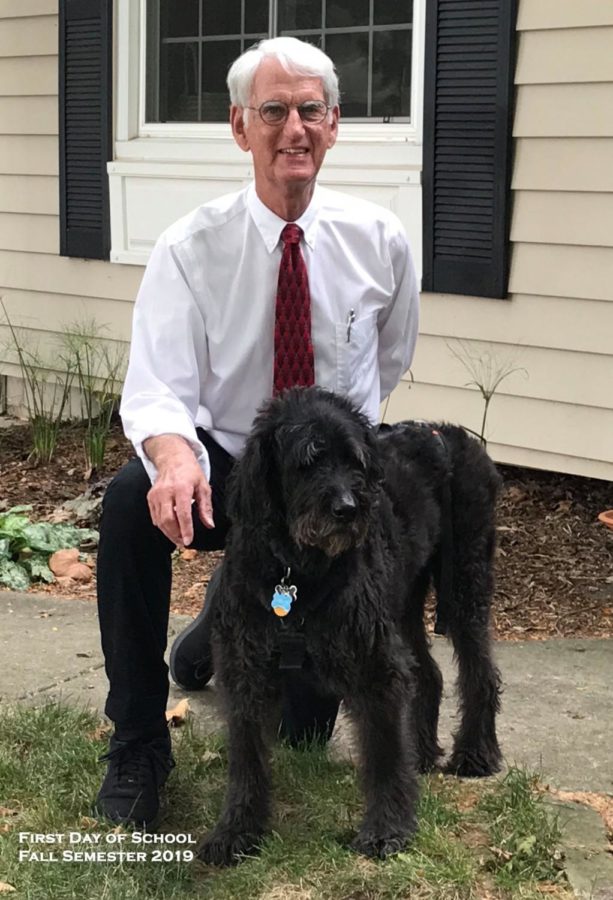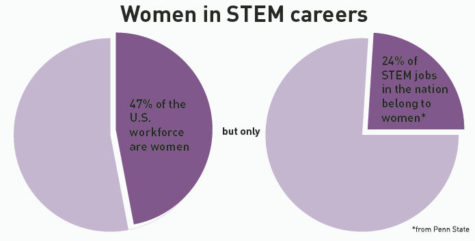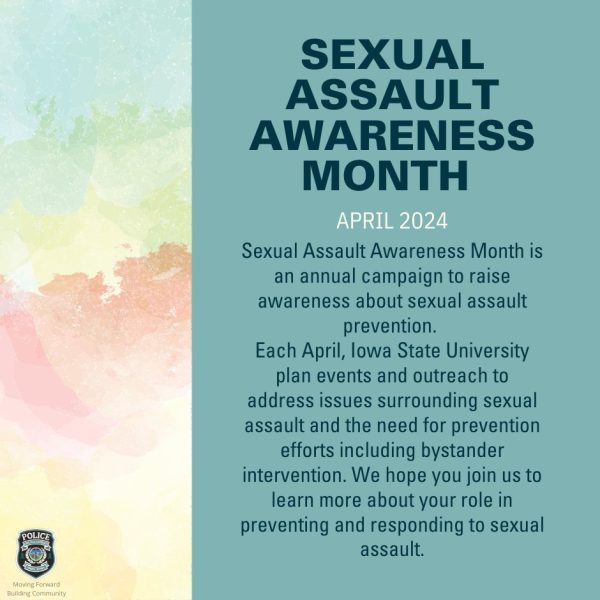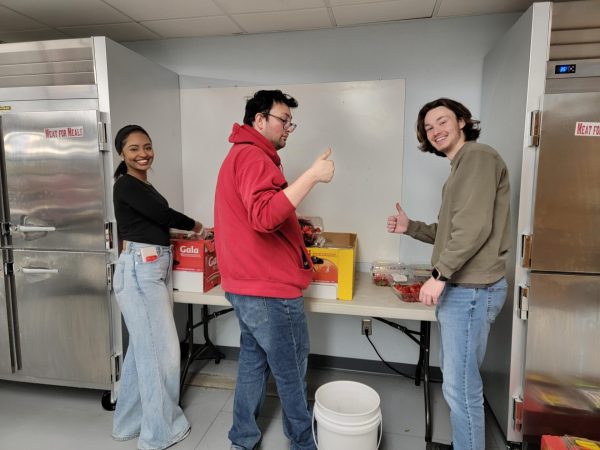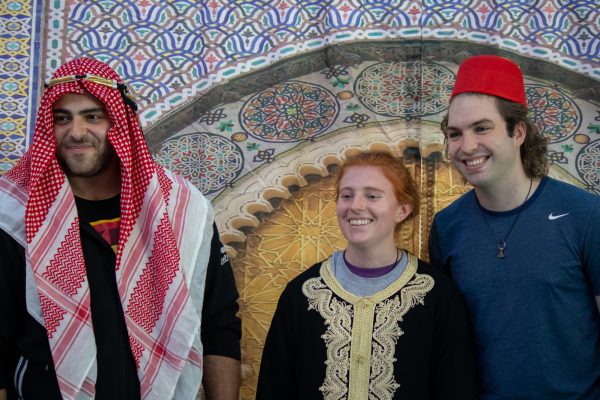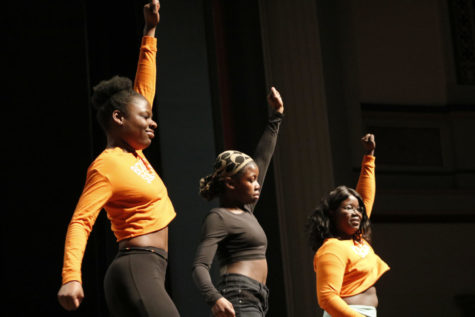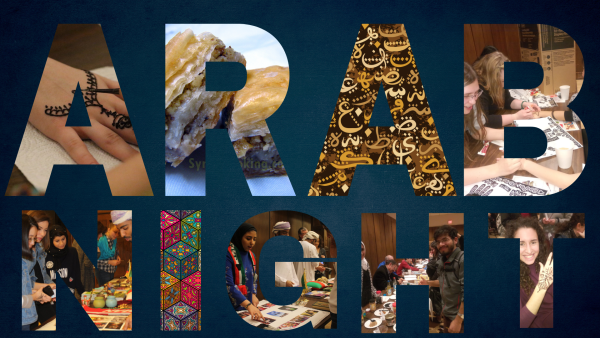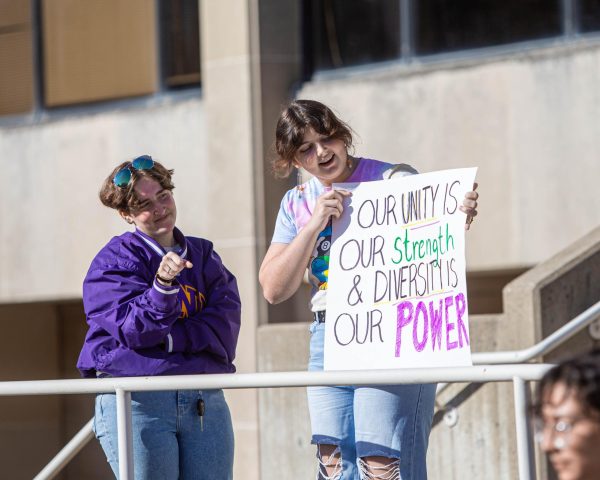Donald Lewis finds beauty in the small things
January 28, 2020
Ohio-grown farm boy Donald Lewis found his passion in a college biology class 40 years ago and is still sticking to it.
Lewis, who is currently an entomology professor at Iowa State, grew up on an Ohio dairy farm and said he assumed after college he’d go back and be a dairy farmer for the rest of his life. But sophomore year of college, his plans changed.
Lewis recalled disliking biology throughout the entirety of high school, but it was a college professor that made it interesting to him. The class’s insect examples fascinated Lewis enough to continue to take more of his entomology and insect studies courses.
“I was hooked,” Lewis said. “As a farm kid, flies were a nuisance, insects in the field were a nuisance and I paid very little attention to them. It wasn’t until college that this lightbulb went on over my head.”
After obtaining his graduate degree from Ohio State University, Lewis began as a young professor in 1977 at Iowa State.
When he started, his appointment was with extension. Extension is one of the three missions of a land grant university like Iowa State. Land grant universities teach students, do research to create new knowledge and distribute that knowledge to growers and citizens so they can make better decisions, Lewis said.
“For the first twenty years, all of my teaching was off campus. It was workshops and seminars, programs with growers and producers or nursery producers, greenhouse growers and pest control operators,” Lewis said.
But in 2000, Lewis started teaching in the classroom on campus. He began with a course for turf grass students and a study abroad course. In the fall of 2009, he began teaching Iowa State’s famous entomology 201 and 211 online courses.
“I was offered the opportunity to redefine myself, less off-campus teaching, more on-campus teaching,” Lewis said.
Lewis called his new appointment to classroom and online teaching, “a shot in the arm,” but an opportunity he was eager to take.
“I did and I do love what I did with extension – meeting growers, meeting with the public, answering questions about insects, finding out what they need to know and helping them find information about their insect problems,” Lewis said. “And I still do that, but that’s about half of my time now, whereas teaching is the other half.”
Lewis called online teaching a new and invigorating experience, but said it was exciting for him to try something new and find out that he likes that too. His previous work with extension was, “a lot of meeting people one time,” Lewis said.
“You would go talk to insect growers, and you’d help them solve their insect questions in the green house, and then you might not see those people for another two years. And then you’d go talk to exterminators […] and you might not see those people for a year, so there was this variety in extension — it was always a different subject and it was always with different people, as opposed to seeing the same classroom of students 30 times a semester,” Lewis said.
The variety extension offered worked very well for Lewis, and he said he would still be doing it if the opportunity of full-time teaching and taking over the online course hadn’t been handed to him.
Lewis acknowledged that a course about bugs isn’t the most intriguing opportunity for the average college student, but can end up being a very interesting and useful one.
“Part of it is just overcoming the fear, the aversion that insects are only creepy, they’re only disgusting, and part of the way we do that is to stop talking about cockroaches and bedbugs and start talking about lighting bugs or praying mantises and suddenly they go, ‘Oh, yeah, those are kind of neat’,” Lewis said.
There are certainly parts of entomology that are prettier, or even cleaner, than others. Lewis gets his students’ attention by fascinating them with the beautiful parts, rather than the less glamorous insects like centipedes and cockroaches.
“And then you start talking about butterflies, and you tell them the story of the monarch migration or you talk about the importance of honeybees and they go, ‘Oh, bees sting you,’ but then you say ‘But look at the benefits of bees, the pollination service, the honey’, and so bit by bit you can introduce some interesting, non-threatening parts of entomology,” Lewis said.
Eventually, you might even see the fascination in insects like dung beetles, just as Lewis does.
Lewis said that if you ask most students why they’re taking his course, they’ll say it’s because they needed an hour or three of a natural science credit to graduate.
“That’s fine,” Lewis said. “Come on in, we’re glad to have you.”
Lewis said his courses aren’t going to be threatening, and they won’t be terribly difficult, but they are something you’ll have to try at. You’ll get an exposure to something you may have never known or thought about, which is why Lewis says he teaches these non-major courses.
“You get this brief exposure of something outside your normal studies, and that’s a good thing — to expand your horizons, to see a little bit of a bigger piece of the world,” Lewis said.
Lewis said a frequent comment he gets on evaluations — and one of his favorites — is a student mentioning something new that they learned in his class and saying, “I didn’t know that was a thing.”
“That’s why we do it,” Lewis said. “That’s why we teach service courses — courses for non-majors — so you go out of here a little better prepared to meet the real world, in the process we’re eventually going to tell you about bedbugs and cockroaches because you might see those some day, but you’ll have a little better appreciation […] but that’s the goal here, to create this exposure.”

